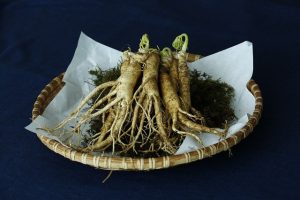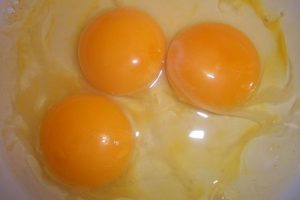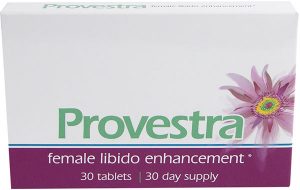 Three hundred billion dollars.
Three hundred billion dollars.
That’s how much Americans forked out for prescription medications last year, with roughly one in two adults having taken a prescription in the past month.
Almost one in three took two or more prescriptions at once.
And women were more likely to pop pills than men.
This, according to Prevention magazine, which cites numbers from the Center For Disease Control which suggest, if nothing else, we love our pills when they come from the doctor.
And sometimes, we’d prefer to take medicine to cure our ailments than to look deeper and tackle what’s causing the problem.
Cue nature.
More specifically, look to the many natural remedies that can not only reduce many of the health issues that affect the American woman, they can do so without those ugly side effects.
They may be more affordable, too.
Eight All-Star Nutrients For Women
Be honest, how often do you wash a burger down with cola?
If you’re like most of us, you do it at least twice a week.
That’s a whole lot of empty calories in your diet that add up, stack on the pounds AND contribute to acne, wavering sex drive, and more ominous health concerns like cancer and diabetes.
The following herbals may not cure a life-threatening illness.
Nor will they make up for a lifetime of smoking if that’s been an issue.
What they will do is fill in many of the nutritional gaps in your diet.
And treat acne, prevent migraines, and make premenstrual syndrome a whole lot more comfortable.
Unless otherwise stated, it’s best to get these nutrients within a daily supplement.
Speak with your doctor if you have any specific medical conditions or concerns about interactions with existing medications.
With that said, put these all-star nutrients in your diet and enjoy the results!
Black Cohosh Root – From eastern North America, this member of the buttercup family has been used for hundreds of years by Native Americans for a variety of health issues.
Best For: Reduction of hot flashes, painful periods and symptoms of menopause.
How Much You Need: Aim for 40 mg of black cohosh each day, taken as a supplement, ideally with a major brand offered at your local health store.
Special Considerations: Avoid black cohosh root if you have a history of autoimmune disease or liver problems.
Ginseng – The Ginseng family has eleven members, all of which hail from Asia and North America.
 Ginseng has a long history as an aphrodisiac.
Ginseng has a long history as an aphrodisiac.
Best For: Take your pick – ginseng increases your immunity, boosts metabolism, increases mental focus and memory and may even reduce risk of cancer and diabetes.How Much You Need: One to two grams of dry powder each day will do the trick or 200 mg as a standardized extract.
Stay with respected brands that are standardized to 4% ginsenosides.Special Considerations: Ginseng is not recommended for pregnant women or those who are breast-feeding.
You’ll most often find ginseng marketed as Asian, Panax, Chinese or Korean ginseng root.
Take ginger with you the next time you’re trolling the high seas; ginger can reduce motion sickness and vomiting from pregnancy.
Liquorice Root – From the liquorice plant of southern Europe and parts of Asia, liquorice root is of particular interest to women who struggle with hormone fluctuations.
Best For: Symptoms of excessive testosterone, including facial hair, weight gain, acne and low interest in sex.How Much You Need: Keep liquorice root to 50 mg a day.
Be sure the supplement maintains a 1:1 ratio if combined with peony, as you may encounter.
Special Considerations: Speak with your doctor before using liquorice root if you have a history of high blood pressure.Ginger – Much more than a bottle collecting dust on your spice rack, ginger’s a spice, delicacy and multi-purpose medicine all rolled into one.Best For: Take ginger with you the next time you’re trolling the high seas; ginger can reduce motion sickness and vomiting from pregnancy.How Much You Need: One to two 500 mg capsules of powder every four hours if used to treat nausea. One inch of peeled fresh ginger is about 500 mg.Special Considerations: Avoid ginger after surgery as it may extend bleeding time.
Ginkgo Biloba – A large tree cultivated as both food and medicine, ginkgo biloba is currently being studied for its ability to delay Alzheimer’s disease.Best For: More energy, better memory and mental focus, improved blood circulation and, for women interested, greater orgasm ability and satisfaction. You have to love better blood circulation.How Much You Need: 120 mg within a 50:1 extract, taken two to three times a day.Special Considerations: Should not be taken by pregnant women or those on blood-thinning medication, including aspirin. Ginkgo biloba should not be taken within 36 hours of surgery.Vitamin D – You can synthesize vitamin D with exposure to sunlight or with diet, but the former can lead to wrinkles, damaged skin and skin cancer if you’re not careful.Best For: Stronger bones, reduced risk of osteoporosis, possibly lower risk of colon cancer and arthritis. Vitamin D may also protect your vision and reduce symptoms of that dreaded PMS.How Much You Need: Are you pregnant or between 19 and 50? Stick to 200 IU. Between 51 and 70? Double that. Women over 70 should get 600 to 800 IU each day. You can get this in your diet, specifically from milk, juice, fortified cereal, salmon, sardines and egg yolks.Folic Acid – Essential to health of red and white blood cells, folic acid is especially important to women during pregnancy, as deficiency in this water-soluble B vitamin can lead to birth defects.Best For: Cell growth, lower risk of heart disease, reduced blood pressure, treatment for memory loss and possible prevention of cancer and Alzheimer’s.How Much You Need: Start at 400 mcg. Pregnant women should get 600 mcg, breast-feeding mothers, 500. Don’t go past 1000 mcg each day without consent from your doctor. Find folic acid in green, leafy vegetables, orange juice, wheat germ, dried beans and fortified grains.Calcium – More goodness for your bones, calcium is essential to women at all stages in life.Best For: Stronger bones, lower blood pressure, muscle contraction and nerve transmission. Calcium may also reduce PMS (hooray!) and assist with weight loss.How Much You Need: As with folic acid, calcium is important to a healthy pregnancy, with 1000 mg recommended for women aged 19-50. Nudge that up to 1200 mg once you hit 50.As well, you may also consider zinc, iron and a variety of essential vitamins listed at Prevention magazine’s list of best vitamins for women for your health, happiness and the ability to greet each day with a smile on your face.
Remedies to Treat a Migraine
Got a headache combined with the pleasantry of nausea?
 That’s migraine at work and it plays favorites – women are three times more likely to get regular migraines than men.
That’s migraine at work and it plays favorites – women are three times more likely to get regular migraines than men.
You know how this goes.
You get a headache, you pop an aspirin, and hopefully it lets up in about 30 minutes. This is masking symptoms, mind you. When a migraine pops up, you just want relief. Then the cycle continues and there’s no end in sight.As a prevention technique, try feverfew. This aptly named medicinal herb contains an active ingredient, called parthenolide, that inhibits the chemical within your brain that causes dilation of the blood vessels responsible for your headache.
You can also try butterbur extract, a series of plants from the daisy family that can reduce frequency and severity of attacks.
You can buy feverfew combined with ginger in a tablet called LipiGesic, which reduced migraine symptoms in 63% of participants in a clinical study. And butterbur is readily available as a prevention from migraines, available as a capsule, tincture or powder.
Take 75 mg each day until your symptoms subside for at least three months.
Thyme May Reduce Acne
A lingering trauma of teenage years for many, acne can last well into adulthood and affect one’s confidence.
People with oily skin are at a greater risk of problem acne, with roughly 30% of adult women struggling with acne on a regular basis.
But there may be treatment for acne in an unexpected place: your spice rack.
In a British study, researchers at Leeds Metropolitan University steeped thyme, marigold and myrrh in alcohol and tested the formula, called a tincture, on acne-causing bacteria. Each of the three ingredients had stronger antibacterial properties after five minutes, when compared to plain alcohol.But there was something special about thyme. In fact, thyme was even more powerful at reducing acne than a standard concentration of benzoyl peroxide, a common active ingredient in many drugstore acne treatments.
It can’t hurt to sneak more thyme in your cooking if you struggle with acne.
Good to know, as benzoyl peroxide can lead to burning and skin irritations.Thyme as an acne treatment is still in preliminary stages, mind you, and it may be a while before a product is offered. But it can’t hurt to sneak more thyme in your cooking if you struggle with acne. And if you’re really interested in herbals for acne treatment, try ClearPores, a three-step acne treatment with a daily herbal supplement formulated with echinacea, liquorice root and turmeric.
Remedies For PMS
A minor nuisance for some women, a raging beast for others, premenstrual syndrome affects roughly 85% of women and is most common between the late 20s and mid-40s.
Black women are more likely to report excessive food cravings from PMS than caucasian, while white women tend to experience more dramatic mood changes and weight gain. Go figure.Women with PMS, and its more intense cousin, premenstrual dysphoric disorder (PMDD), may find that antispasmodic herbals can help to relax the body and reduce the pain, digestive issues and bloating sometimes experienced with PMS.
Herbal teas can be helpful – try chamomile, valerian, peppermint or cinnamon.
You can also try B vitamins; in one study, researchers followed over 2,000 women for ten years.
The women with a higher dietary intake of thiamine and riboflavin, which both fall into this category, were much less likely to experience PMS.
Supplements did not have the same effect.
You can can thiamine in pork and Brazil nuts.
 Find riboflavin in eggs and dairy products.
Find riboflavin in eggs and dairy products.
While you’re at it, avoid salt, as it can cause bloating.
Skip sugar and watch the amount of caffeine you consume.
Aspirin and ibuprofen are OTC treatments that can provide temporary relief from PMS, but you’re reading this because you’re interested in natural remedies for PMS.
If that strikes a chord, watch your diet.
Put some herbal tea and black cohosh in your life and you’ll find that natural relief you’re looking for.
Herbals For Your Sex Drive
If all roads lead to Rome, it seems inevitable that our journey through some of the best natural remedies for women eventually makes its way to the bedroom.
Contrary to what you might imagine, the female sex drive doesn’t just dry up. In a recent survey of more than 27,000 women between 50 and 79, researchers found that sexual activity declined, but the desire to have it did not. Fifty-seven percent of the women said they wanted more sex, not less. Common hindrances of an active sex life? Poor health and lack of an able partner. But they wanted more sex, and therein lies the key. And if you’re among the estimated 50% of women who, for one reason or another, aren’t satisfied with things in the bedroom, there’s a natural remedy for that too.
But they wanted more sex, and therein lies the key. And if you’re among the estimated 50% of women who, for one reason or another, aren’t satisfied with things in the bedroom, there’s a natural remedy for that too.
Natural female enhancement refers to products that nurture the female anatomy with herbals and amino acids.
Some of them may sound familiar.
Ginseng, ginkgo biloba, liquorice root and black cohosh.
Now combine those with l-arginine, damiana leaf, B-complex vitamins and zinc.
The herbals we’ve discussed in this article have an additional benefit: besides being great for your health, they’re ideal to restore the shifting hormones in your body that can cause disinterest in sex.
With this comes the ability to lubricate, enjoy full body arousal and experience deep, engorging fulfillment.
Hooray herbals!

You should consider, however, that scams are not uncommon in the male enhancement industry, and in female enhancement, it pays to shop around and choose a well-established product from a reputable company and a firm, money-back guarantee.
One option? Provestra.
Conclusion
The natural remedies we’ve discussed in this article may not provide the immediate, dramatic reduction in symptoms you’ll get with medication.
Yet, that may just be what you’re looking for.
Drugs can save lives, yes.
But they can also mask symptoms and not address the issues causing your health concerns.
This is Naturalhealthsource.
And we firmly believe that the natural remedies you’ll find on this site and throughout our article section can reduce your pain, heal your body and bring goodness back in your life.
You’ll find what you’re looking for in these, some of the best natural remedies for women.
We think, very often, that’s a better way to go.




